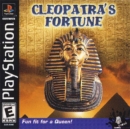FableHero said:
Developers should be able to maximize their profits with every platform. There are great games being made that simply do not sell because they debute on a low selling sytem (example, bayonetta 2). Because of this. sequals are not being made even if the game deserves it. It's only a matter of time before the invisible hand of economics brings games to every system possible.
We already saw a huge shift in games in generation seven. Playstation exclsives such as Metal Gear Solid and Final Fantasy expanded to other systems in hopes of maximizing profits.
There are some franchises that are still selling geatly, like Pokemon, that will adapt in this new market more slowly. Even with pokemon we are starting to see spinoffs on tablets (pokemon trading card game).
If developers wish to use their resources more effeciently it would make more sense to make little changes to one game and release on all systems rather than to make entire new games per system. This is the way of the future.
Microsoft Recognizes this by allowing cross play games and apps from Xbox One to PC. In the future, we will start to see this with every platform. I think a trend we will see is free to play console games like Fable Legends to start occuring.
What does this new market mean? It means developers can create games quicker, profit more, and produce games for a cheap price.
edit work in progress
|
1. Bayonetta was a multiplatform game that didn't make enough profits so wasn't deemed worthy of having a sequel. Nintendo funded the bayonetta sequel. You say low install base prevents sequels but it was actually the opposite with your example.
2. FF13 was in development hell, and SE admitted to financial burdens, which is why they went multiplat, because they believed the game wasn't going to produce the kind of sales they were hoping for. A third party should only care about the bottom line...so when x360 and ps3 were both at the same amount of sales, it just made sense (especially considering that many ps2 owners probably bought a 360). But now that it appears ps4 is becoming very dominant, it's unlikely that we will see fewer exclusives. If anything, we will see more.
3. Devs have come forward and expressed that there are pros and cons to both exclusivity and multiplat. Simply "being on more platforms" does not necessarily equate to more sales. It does in many cases but not in others. As we've seen historically, smaller new IPs tend to start off as exclusives. Literally pick any exclusive third party game in the past 10 years and you will see that they are either smaller budget, new IP, or being funded. Games that become multiplat are generally established IPs over time which developers believe either has a fanbase scattered over several consoles, or is simply a game that would appeal to a large base.
ie; tomb raider was always ps franchise. after a generation, ps fans likely bought xbox consoles as well. SE produced a tomb raider that was very apealing to a wide audience. Therefore, it makes sense to release on multiple consoles as there might be a solid base of consumers ready to purchase on competing hardare. Now turn the tables on that and look at ni no kuni. It's a relatively newish game with a previous version on ds many years ago. The devs wanted to make a console version with amazing graphics. It's a genre that is not well received in the US, and also tends not to do very well on xb. PS has a history of similar games. From a business perspective it made sense to make the game ps3 exclusive as the fanbase was perceived as existant on one console, may lose profits going multiplat. So you see there are reasons for both. You can't just say "multiplat is the future" without understanding how the industry works. Hopefully, I've enlightened you a bit here.
4. Microsoft is using crossplay and crossbuy in order to compete in the pc market. They've already said several times that they want to refocus on PC. Bringing all their xb games to pc is therefore a natural progression. It has nothing to do with "selling more games" and is in fact, a COUNTER to your argument. They are actually bringing the games to PC in order to SEGREGATE the pc community, by installing a competing service to steam. For example:
You are a PC user. Both steam and xbl are offering rollercoaster tycoon on sale for 15$. Each service profits 2$ per sale. You use both, but today you went on xbl because you wanted to buy halo 5. While you were on xbl, you saw RCT on sale and decided to buy it. You bought it from xbl because of simple convenience. There was no reason to close xbl and then open steam because it was just right there.
MS is not bringing games to create more sales. They are bringing games to TAKE sales away. However, they will simultaneously be creating more of their own sales (their exclusives) by having a new outlet for the PC crowd that doesn't own an xbox, but in turn there will also be users who will now decide to not buy an xbox.
You see, it is not so simple as to say one way is better than another. Their are costs and there are gains. You pick your strategy and hope it plays out. MS is going to cost itself xb1 hardware sales by offering their console exclusives on PC. However, they are simply trading hardware edge for pc edge. Understand?
5. Efficiency is about turning profit. Multiplat does not confirm more profit. If I have an ice-selling business in the the lower 48 states, and I decide that I want to now ship to alaska as well, I will not be creating more profit. I will be costing my business it's "central-focus" by diverting infrastructure to a low margin revenue source. With 48 trucks I can hit each state once a day, so I have to hire both another driver and buy another truck. Then if I go for 50, suddenly I hit the small business barrier and now have to provide health insurance to my workers. The example here isn't factually sound by any means (alaska does need ice like anyone else, health insurance is for a much smaller number of workers, etc). The the point remains. As you grow, you need to make more investments. One game going multiplat suddenly requires the purchase of an engine for multiplat conversion. That's several hundred thousand dollars. Now I need new workers who understand the engine language. Now I have to delay release in order to have all done at the same time. Now I have to hire a team to do demographic research. Etc etc. Efficiency is about turning a dollar as easily as possible. MP does not mean more profit. It just means more possible consumers. The devil is in the word "possible".
6. More options to a console owner does not mean better profits. The more options the consumer has, the more varied their purchases will be. Ie; if you release the NES and the only game on it is super mario, super mario is going to sell many millions. However, if you launch with 500 games, sales will be all over the place, and likely none of them will turn a profit. This is why back in the day the "Seal of quality" made sense, because it gave the mainstream an idea on what was good. Many nintendo games were pure crap, rushed to market and under-developed. There were very bad games on the NES. Absolute garbage. Why? Because developers knew how much competition there was and in order to maximize efficiency, they put the least amount of money into the game...that way, even if it only sells a thousand copies it can be profitable. We see that now this is changing quite a bit. This current industry is run by the mega-corps. The EA's, the Ubis, the Actis. Why? Because these companies can survive bad revenues. They can survive low efficiencies. More options does not mean better efficiency...it means MORE COMPETITION.
Almost everything you've said in the OP is the reverse of reality.
1. Bayo 1 was MP to Exclusive sequel
2. games in 7th went mp for a variety of other reasons, such as funding, dmeographic, costs
3. Multiplat means more competition, which lowers sales.
4. MS is doing cross-buy with pc in order to create service exclusivity, not remove the idea of exclusivity
5. Multi =| more efficient. There are costs associated with anything you do. Some companies just have the ability, others don't.
6. More options means lower quality (hence the boon in indie games) and higher costs for devs. It actually supports corporate centralization.






























































